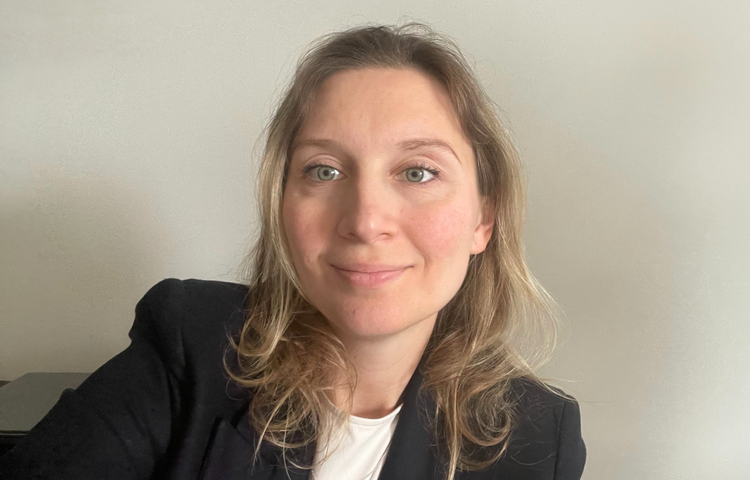COP28 seen by Chief Sustainability Officers

With one day left to conclude climate negotiations at COP28, many Chief Sustainability Officers have now left Dubai – and shared their reflections on this year’s conference.
A number of pledges and announcements have been made at COP28 around food systems sustainability, the energy transition and climate finance, but much remains to be agreed upon – not least the global stocktake, which will drive ambition in the next round of national climate commitments.
Chief Sustainability Officers who went to the conference had a busy week meeting with stakeholders and signing commitments, including to scale regenerative agriculture and strengthen carbon markets. They are leaving Dubai with a mixture of hope that progress is being made and an awareness that it needs to accelerate tremendously to meet the goals of the Paris Agreement.
Kate Brandt, Chief Sustainability Officer, Google: “There is much more work to be done”
For Google’s CSO Kate Brandt, COP28 was all about technology, data, and collaboration. “It is (...) important to recognise that business has an essential role to play in helping address climate change and there is much more work to be done,” she said.
Google used the platform of COP28 to launch a number of initiatives, including joining the Catalyze coalition led by Schneider Electric to help semiconductor suppliers procure clean energy, committing new funding to the Global Methane Hub to track and reduce methane emissions, and expanding its Environmental Justice Data Fund, which aims to help frontline communities collect data for advocacy and mitigation.
Brandt hailed the agreement to triple renewable energy capacity and the United States’ decision to join the 24/7 Carbon Free Energy Compact, which means the country will match every kilowatt of its electricity consumption with zero emissions generation by 2030.
“As my time at COP28 comes to an end, I am both enthusiastic about the progress being made to remove barriers to climate action and more aware than ever of the need to move more quickly to get on track to a 43% absolute reduction in emissions by 2030 and net zero by 2050,” she added.
Jim Andrew, Chief Sustainability Officer, PepsiCo: “How do we make sure that we're addressing the needs of farmers”
Unsurprisingly, the COP28 agenda for PepsiCo CSO Jim Andrew revolved mainly around regenerative agriculture. The company is one of the founding members of the First Movers Coalition for Food, announced on December 1 to accelerate sustainable farming through the power of combined procurement.
During the conference, Andrew talked about the commercial partnership PepsiCo and ADM signed in 2022 to expand regenerative agriculture across 2 million acres in North America by 2030: “We need more of these types of partnerships to bring speed, reach, and investment, ultimately galvanising momentum and impact,” he said.
He also participated in numerous meetings with government officials and financiers from around the world to discuss how to bring together regenerative agriculture and climate finance.
Some of the questions Andrew raised were: “How do we get the ecosystem working? How do we make sure that we're addressing the needs of farmers, keep farmers farming to address the social concerns in and around what they're trying to do, and how do we make sure that their livelihoods are protected communities that they're in stay vibrant?”
Melanie Nakagawa, Chief Sustainability Officer, Microsoft: “We need to continue closing the green skills gap”
At COP28, the CSO of Microsoft says she gained valuable insights on talent and human capital, emphasising green skills, representation and team work.
Citing a recent report that highlighted the gap in green skills between men and women, Nakagawa said: “We need to continue closing the green skills gap - for all people. At the same time, we need to recognise that women are disproportionately impacted by climate change and by a widening skills gap (...). But thanks to this awareness, resources are coming online to build these skills.”
Jenn-Hui Tan, Chief Sustainability Officer, Fidelity International: “Carbon markets need rules to price correctly”
For Fidelity International CSO Jenn-Hui Tan, four themes stood out in his time at COP28: the need for a clear direction on the phase-out/down of fossil fuels, the importance of regulation, data and action to make transition finance tangible, the urgency of scaling finance for emerging market mitigation and adaption (“Watch out for more sovereign green bonds linked to NDCs and economy-wide transition plans,” he said on this topic), and the fact that “nature is creeping into most conversations”.
Now back in London, Tan says he will be watching Article 6 negotiations closely, as “carbon markets need rules to price correctly”.
“Beyond the pledges, taskforces, initiatives and frameworks we've come to expect, how much of that will translate into meaningful progress?” he pondered.
Angela Hultberg, Global Sustainability Director, Kearney: “We cannot solve the transport challenge just by talking to transport experts”
Management consulting firm Kearney launched the Centre for a Sustainable Future, a collaboration forum to accelerate the net zero transition in the Middle East and North Africa, at COP28. But for its Global Sustainability Director Angela Hultberg, the biggest conference takeaways were around transportation.
“The discussion around transport, currently at 22% of global emissions, has never been broader. We cannot solve the transport challenge just by talking to transport experts . It’s more complex now, we need to bring in other sectors, and more dimensions, such as health, social impact, reskilling and much more,” she noted.
This will involve electrification, supported by the scaling up of charging infrastructure, but not just. “I was happy to see topics like ‘Avoid and Shift’ get some focus,” added Hultberg, emphasising that “the best kilometre is really the one we walk or bike”.







Member discussion